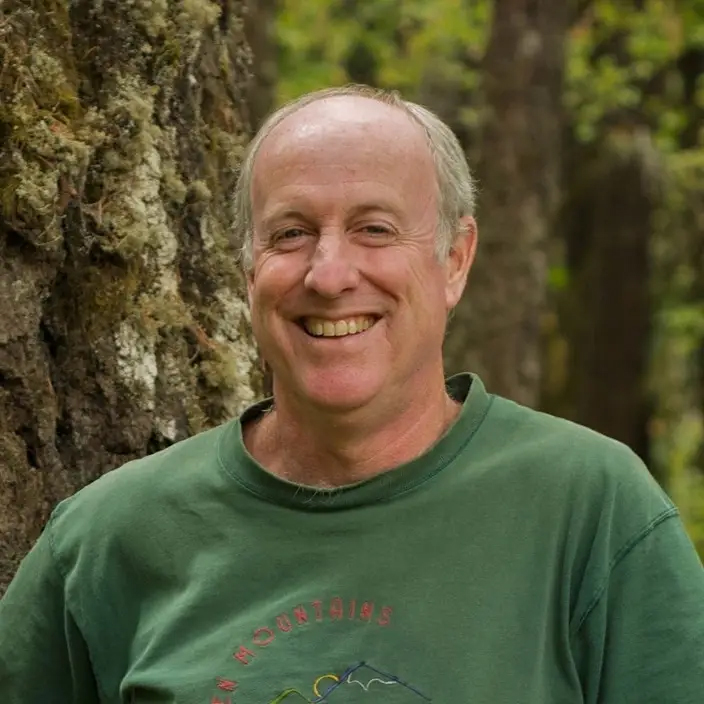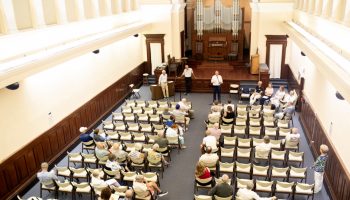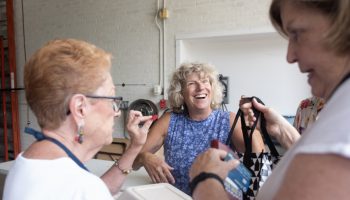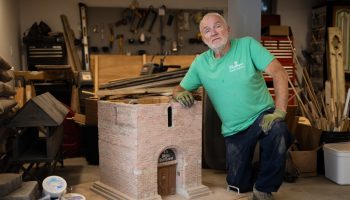As climate change persists and biodiversity fades, entomologist Doug Tallamy calls for everyone to step up and take on the individual responsibility of sustaining the environment.

“It’s important that you’ve got a responsibility to take care of the Earth that takes care of you,” Tallamy said.
At 12:15 p.m. today in Smith Wilkes Hall, Tallamy will discuss the importance of native perennials, such as oaks, in his lecture “The Nature of Oaks” for a Bird, Tree and Garden Club Brown Bag.
Tallamy is the T. A. Baker Professor of Agriculture in the Department of Entomology and Wildlife Ecology at the University of Delaware. Within his 41 years of teaching entomology classes, Tallamy has written 106 research publications, including his books Bringing Nature Home: How You Can Sustain Wildlife with Native Plants, Updated and Expanded, The Living Landscape: Designing for Beauty and Biodiversity in the Home Garden, Nature’s Best Hope: A New Approach to Conservation That Starts in Your Yard, and his most recent, The Nature of Oaks: The Rich Ecology of Our Most Essential Native Trees, of which his lecture will largely draw from. He has received awards from the Garden Writers Association, the National Audubon Society, the National Wildlife Foundation, The Garden Club of America and the American Horticultural Association.
The Nature of Oaks, released by Timber Press in 2021, delves into the resilience of oak plants, which are amongst the most suitable plants for insects such as caterpillars.
“Oaks are the best plants when it comes to supporting insects, because they support more species than anything else,” Tallamy said. “It’s not just any insects we’re trying to support; caterpillars turned out to be more important than most other insects in terms of transferring energy from plants to other animals.”
This continues the flow of energy in the food web; without insects to eat the plants, the system collapses, “and that’s what’s happened with our nonnative plants,” Tallamy said.
In his lecture, Tallamy will talk about the different types of animals and insects that rely on oaks and native plants to keep the ecosystem running, and also offer advice to Chauatauquans on how to care for oaks in their respective homes.
“I hope to motivate people to pay attention to the plants and their property,” Tallamy said. “Focusing on oaks is not the only important plant, but to realize that plant choice matters. If we don’t choose the plants that support our local food webs, then we have … collapsed ecosystems, we have this continuing biodiversity loss, and that’s really going to come back to bite us.”
In 2021, Tallamy founded the Homegrown National Park with Michelle Alfandari. The Homegrown National Park is a grassroots organization that aims to educate the public on the importance of reviving nature through growing native plants and creating new ecological networks. The organization was born out of a problem Tallamy sees in the United States: Ecosystems are losing local plants central to biodiversity and food webs.
He said the solution lies in holding individuals and private properties responsible in the fight to sustain biodiversity. One of the organization’s main goals is to cultivate 20 million acres of U.S. soil with native plants, which would proportionally equal half of lawns owned by private properties.
“Seventy-eight percent of the country is privately owned; 85% of the country east of the Mississippi is privately owned,” Tallamy said. “If you don’t do conservation on private property, you’re going to fail. That’s a lot of people that are now important players in conservation.”
Tallamy said that if every property owner replaced the invasive plants on their land with native plants, 90% of the work would be done. He believes that tackling the problem of fading biodiversity requires not only large-scale organizations, but also the efforts of individuals.
“The reason everybody’s personally responsible for the world is because we all need healthy ecosystems,” Tallamy said. “Every single one of us totally depends on it, so why would we have just a few ecologists and a few conservation biologists doing all the conservation — everybody else has a green light to wreck the world? That doesn’t make sense.”
In Tallamy’s first visit to Chautauqua, he hopes to inspire Chautauquans to take on their personal responsibility to the planet they call home.
“Chautauquans no different from anybody else,” Tallamy said. “Their responsibility is the same. I want them to realize that their little piece of the world can either contribute to local ecosystems or detract from them.”




